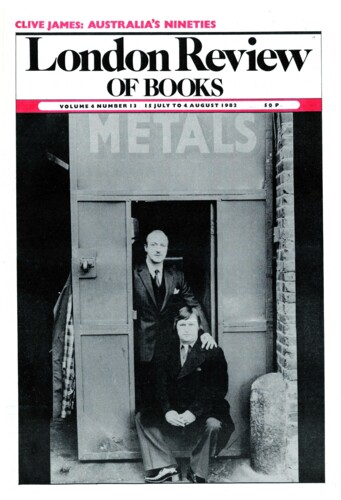When Gould meets Galton
A.W.F. Edwards, 30 December 1982
Modern evolutionary biology seems prone to idle argument and useless controversy, as if it had an urge to experience once again the exciting atmosphere of the Darwinists v. the Creationists, or the Mendelians v. the Biometricians; or perhaps a longing to experience the ecstasy of the physicist, the Maxwell or the Einstein, whose new theory so splendidly and triumphantly succeeds. The trouble probably stems from the fact that the really successful theories of biology in recent decades have been biochemical and molecular, leaving the natural historian who tries to move from a specific area of study to the construction of general hypotheses with little to argue about. So the population geneticists set to with fierce debate about whether the majority of mutations are neutral in their selective effect, the taxonomists classify themselves as cladists or evolutionary systematists and hurl insults at each other, and the evolutionary biologists split into sociobiologists and the rest – separate species, we may suppose, since intercourse between the two has not so far proved fruitful.



